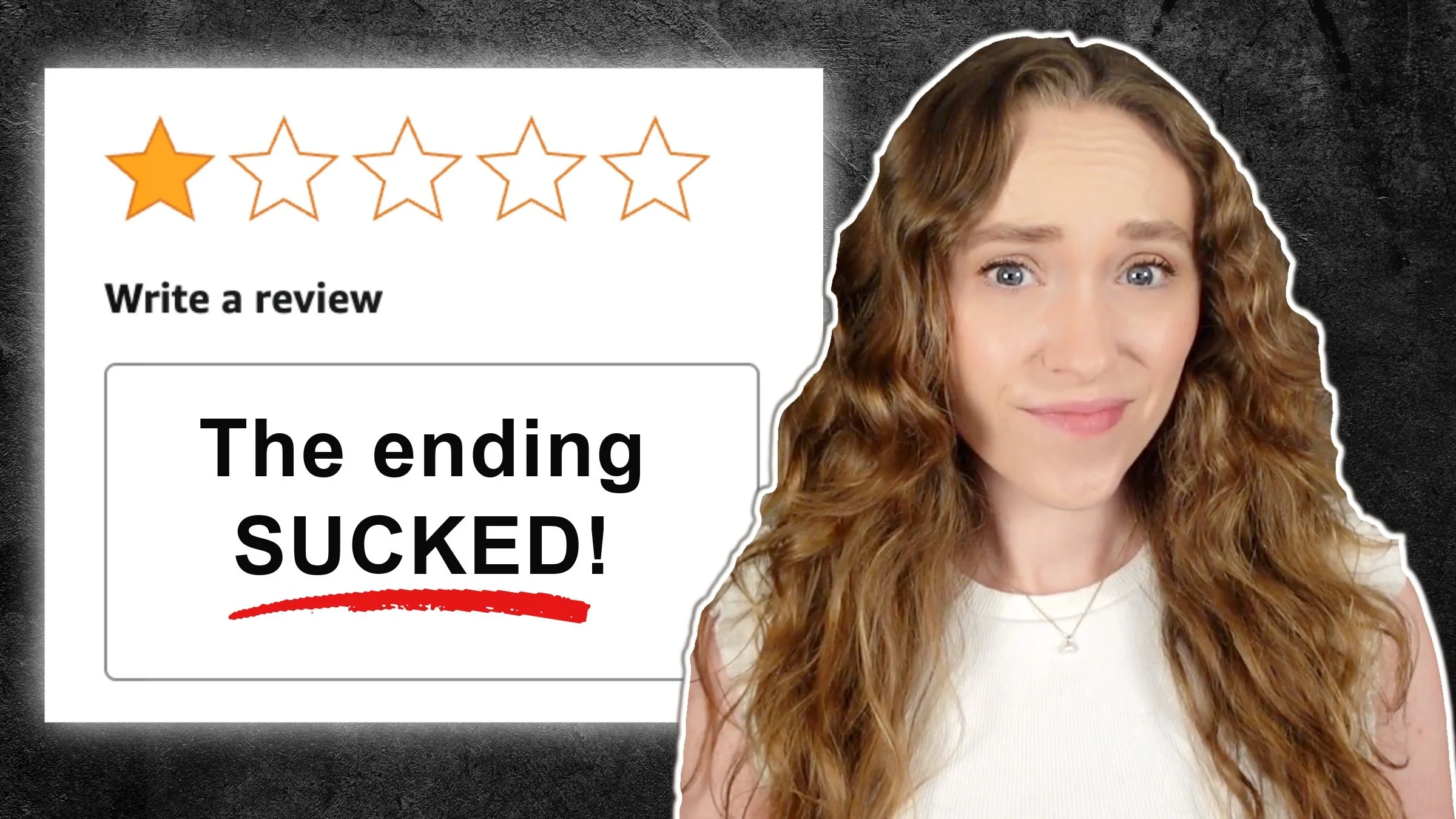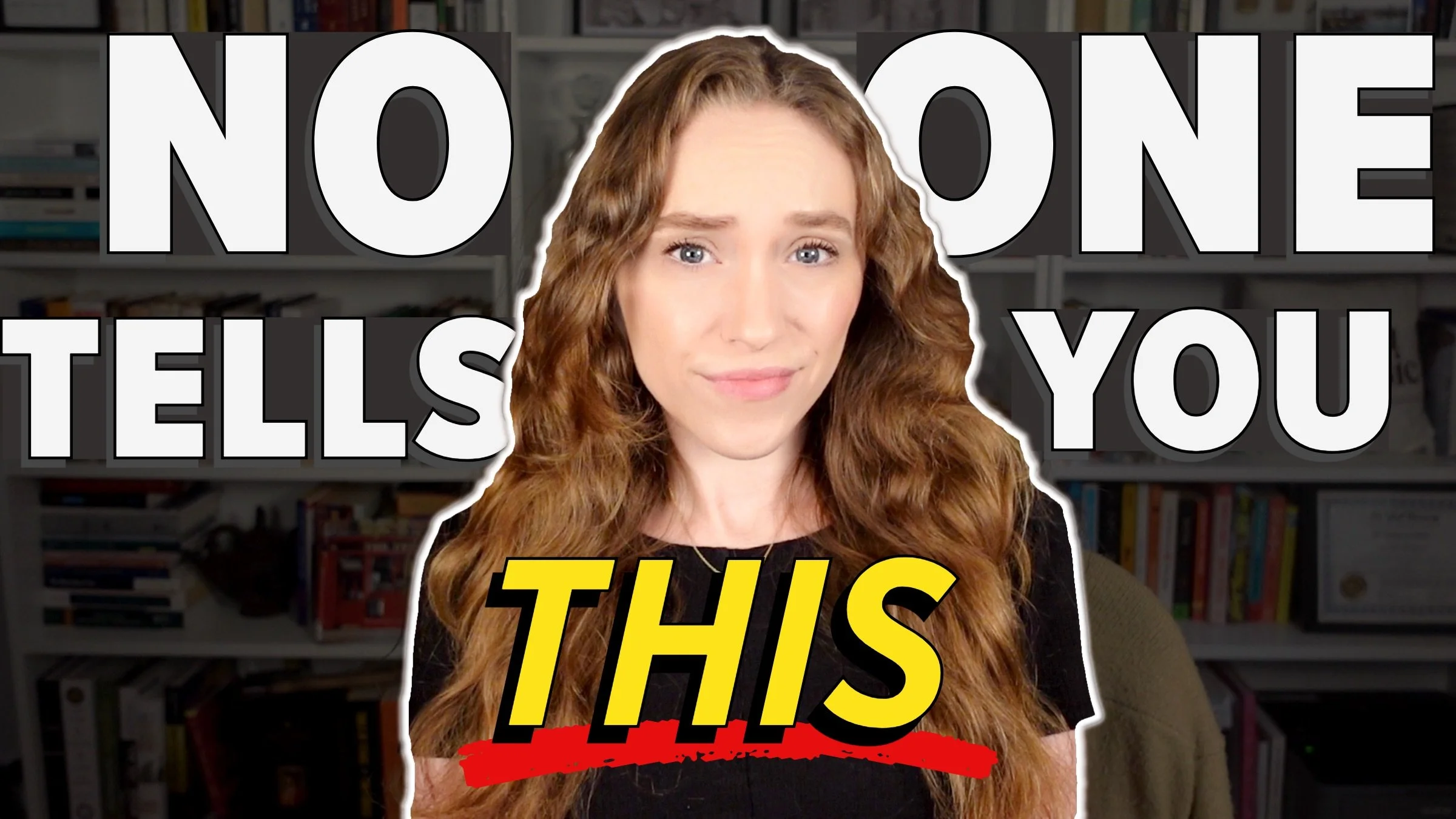Have Some Perspective! First Person Perspective Pros and Cons
HIT PLAY OR READ THE POST BELOW:
As a fiction editor, one element I discuss with my clients often is point of view. Most novels are written in either third or first person point of view, with second person point of view being used only occasionally, as it’s tricky to execute well. But even though it seems like there are only two main options, there are many ways to execute your novel’s point of view..
For example, some novels have a single first person narrator for the entire duration of the story; others have multiple first-person narrators that the story switches between—this approach is especially popular in thrillers. Some novels even switch between first person and third person perspective with each chapter.
In this article, I’m going to focus on the pros and cons of novels written in first person perspective specifically. First person writing uses “I” as the subject, meaning the novel will be written in the character’s internal voice. How do you decide if first person is really the right point of view for your novel? Let's start by talking about the pros of first person perspective.
1. Quick Characterization
I must admit: I love first person novels and I find myself drawn to them. Whenever I crack open a book, the first person perspective immediately gives me an intimate view into the narrating character’s mind.
First person allows you to bring your character’s voice to life, where they can express and confide their individual desires, concerns, and vulnerabilities without interfering with the main action at hand. As a result, your readers will likely feel instantly connected to your narrator. They will better understand your character’s motivations and why they do what they do.
A good example is the Twilight series. The series is narrated from Bella's point of view, and as such we are able to gain a deep understanding of her emotions, doubts, and worries. Even if you didn’t enjoy the story or personally like her character, we have no doubt as to why Bella is acting the way she does.
Think about how different this series would be if we flipped between her and Edward’s point of view. We’d see that he has entirely different concerns and issues from Bella. His perspective is so distinct that it deserves its own separate novel, which in fact is exactly what happened—Stephanie Meyer released a rewrite of the Twilight book from the perspective of Edward.
By keeping the focus on a main narrating character, the audience is easily able to gain a strong connection to the story’s protagonist. This is very important, as it will then be more likely that they become invested in the story at large. This ease of characterization is one of the major pluses of first person perspective.
2. Compelling Character Voice
Another positive of first person perspective is that it offers you, as the writer, the opportunity to develop a compelling and creative voice for your character. For example, if your character has a witty, effervescent personality, then the narration will shine with their fun personality. If your character is observant, you can incorporate all their insights and pointed thoughts.
First person lets you transcribe that little voice in your head onto the reality of the page. This is another way to grip the reader quickly, as a well crafted character voice will be as easy to read as a letter or message from a friend. If the reader is captivated by your character’s voice, then again, they are more likely to be captivated by the novel at large.
3. Easy-to-Build Tension
While it’s obvious that thriller and mystery novels need suspense in order to successfully sell their stories, every story needs a good amount of tension in order to immerse their reader—and using a first person perspective is a great tactic to help build that suspense.
Because this point of view is more narrow, with the reader only able to see the thoughts of a single or a handful of characters at a time, you are able to keep your narrative under tight control.
For example, perhaps your narrator doesn’t know something that the other characters do, such as the culprit behind the crime. Then, along with the narrator, your readers also are kept in the dark, putting them step by step with the protagonist as they try to uncover the truth.
Those elements covered the positive elements of first person perspective, but, to stay balanced, here are some negative aspects to using this point of view.
1. Limited Insight
The biggest negative of first person is that, by nature, you’re only able to give your reader limited insight into the plot. This can be a good thing, such as when establishing suspense, but it also means you have to craft the narrative in such a way that the reader doesn’t feel like they’re missing something.
A brief example: I was editing a novel that was written from a single character’s first person point of view. I realized halfway through that the story would be much richer if the writer added another character’s point of view, as it would add a deeper perspective and additional viewpoint to all the events that the original narrator could or would not talk about.
This con to the first person perspective might not be obvious to you as the author, as you obviously have an intimate knowledge of the story already. By asking someone to read through your novel, be it a friend, beta reader, or editor, you can quickly find out if you’re struggling with the plot having limited insight.
2. Unreliable Narrators
Another potential negative to first person perspective regards the technique of an “unreliable narrator.” Unreliable narrators are narrating characters that, intentionally or not, withhold information, lie to, or even mislead the reader.
Some novels can pull off the unreliable narrator exceptionally well, a well-known example being Gone Girl, but if your reader begins to doubt the trustworthiness of your narrator and you don’t provide an additional point of view that puts the plot into perspective, you run the risk of them becoming frustrated and losing interest in the story overall.
A good way to judge whether or not your narrating character is unreliable is to focus on what they’re not saying. For instance, is your character deliberately avoiding talking about her absent mother, or did you just forget to include information about that relationship? And again, having an outside reader always helps. Since they will be experiencing the story for the first time, they can quickly fill you in on what’s working and if the narrator seems too untrustworthy.
3. Alienate Readers
While one positive of first person is that the reader will be captivated by your narrating character’s voice, a potential negative is that the reader can also be turned off by the narrator’s voice, if it doesn’t resonate with them. If your readers find the character’s voice boring, frustrating, or even annoying, it can easily break your story as a whole.
This is something that comes up often when publishing professionals are evaluating a manuscript, whether it’s an agent considering representation or an editor considering the novel for publication. If they find the first person voice irritating, it’s unlikely that they’ll feel compelled to move forward with the novel, even if it’s a well-plotted story overall
There are a few elements you can watch out for to ensure your narrating character’s voice doesn’t rub readers the wrong way. One personal pet peeve is narration that uses too many exclamations for no reason. After reading a couple pages, this can get on my nerves and I’ll find myself wanting to put the book down.
However, at the same time, I understand that the writer likely didn’t intend for me to have such a strong aversion to the narration. This is why enlisting beta readers or hiring a book editor can be really helpful as you’re working on your novel. Not only can they help you identify things like plot holes, but they can also evaluate your narrator’s tone and voice and let you know what their overall impression of the narrator was. That way, you can ensure that your narrating character’s voice is coming across exactly as you intended.
These are the pros and cons I’ve identified within first person perspective novels. As I’ve said, I’m personally drawn to first person perspective novels. I value becoming invested in the characters I'm reading about and developing a close connection with them, but it definitely isn't the best approach for every novel. I have loved novels written in third person perspective as well!
If you’re ever doubting whether you chose the right perspective for your novel, my main piece of advice is to go with your gut. You naturally started writing your novel in a certain perspective for a reason.
I rarely advise my clients to completely overhaul their novels just to change their point of view. And again, trusted beta readers and book editors will be happy to help you spot any issues with your narration so you can ensure it’s hooking your readers and holding their interest. Whatever concerns you may have about your novel’s perspectives can be solved as long as you continue to love and work on your story.
Thanks for reading, and happy writing!






